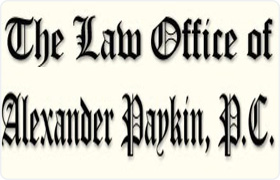Point Lookout Real Estate Lawyer, New York
Sponsored Law Firm
-
 x
x

Click For More Info:
-
The Law Office of Alexander Paykin, P.C.
350 5Th Ave Fl 59 New York, NY 10118» view mapReal Estate Reliable. Dependable. Accessible.
Whether you are buying, selling, renting, or refinancing your house, our experienced legal team will strongly advocate for you at each and every step of the process.
800-747-9261
Anthony A. Nozzolillo, Esq.
✓ VERIFIEDReal Estate, Litigation, Business, Personal Injury, Estate
Seasoned Real Estate and General Practice Attorney
Anthony A. Nozzolillo, Esq. is seasoned attorney representing individual and corporate buyers, sellers, and lenders in both routine and complex reside... (more)
Elliot Scott Schlissel
✓ VERIFIEDDivorce & Family Law, Criminal, Real Estate, Wills & Probate, Bankruptcy & Debt
I am available to help my clients 7 days a week.
The Law Offices of Schlissel DeCorpo is composed of attorneys and paralegals who are caring, dedicated professionals contributing experience and exper... (more)
Gerald Barlow Ryan
Real Estate, Lawsuit & Dispute, Government
Status: In Good Standing Licensed: 40 Years
Richard V. Zand
Real Estate, Lawsuit & Dispute, Divorce & Family Law, Accident & Injury
Status: Inactive Licensed: 63 Years
Paul Jay Clark
Real Estate, Health Care Other, Estate, Wrongful Termination, Elder Law
Status: In Good Standing Licensed: 37 Years
Eric D. Goldsmith
Real Estate, Estate, Criminal, Accident & Injury
Status: In Good Standing Licensed: 24 Years
 Alexander Paykin New York, NY
Alexander Paykin New York, NY AboutThe Law Office of Alexander Paykin, P.C.
AboutThe Law Office of Alexander Paykin, P.C. Practice AreasSpecializations
Practice AreasSpecializations


